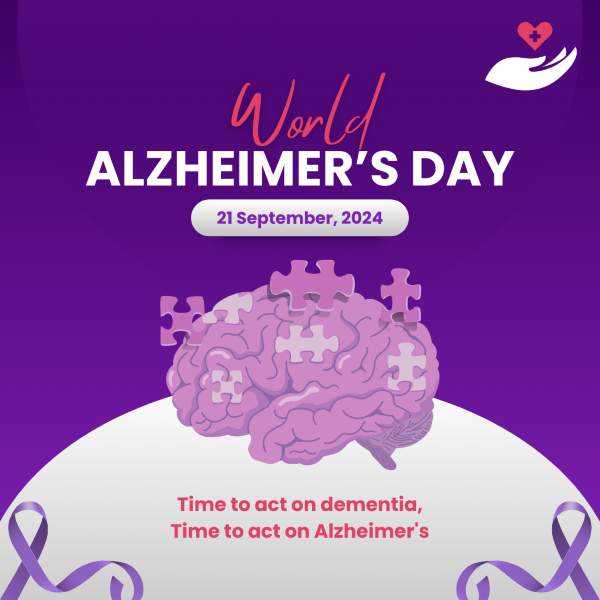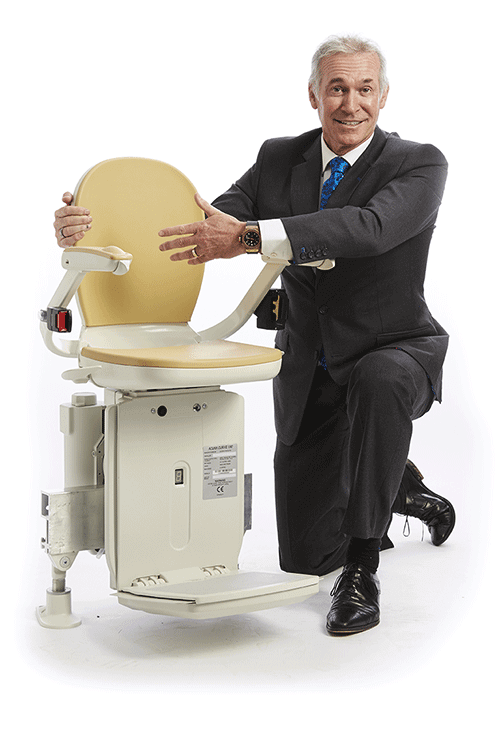There are as many as 50 million people worldwide living with Alzheimer’s Disease or a related form of dementia, but these people are not just a statistic. They are our loved ones—our mothers and fathers, aunts and uncles, grandmothers and grandfathers, and sisters and brothers.
This year on World Alzheimer’s Day, take the time to raise awareness of Alzheimer’s by understanding more about the disease, how it affects your loved ones, and what you can do to help support the people living with Alzheimer’s.
What is World Alzheimer’s Day?
World Alzheimer's Day is an annual global initiative aimed at raising awareness about Alzheimer's disease and other forms of dementia.
Serving as a platform to educate the public about the challenges faced by individuals living with Alzheimer's and their caregivers, the day's primary goal is to challenge the stigma surrounding dementia and promote understanding and empathy for those affected by this progressive neurodegenerative condition.
On this day, various events, campaigns, and activities are organised worldwide to shed light on the impact of Alzheimer's, emphasise the importance of early diagnosis and proper care, and advocate for increased funding and research to find effective treatments and, ultimately, a cure.
World Alzheimer's Day plays a vital role in fostering a supportive global community dedicated to improving the lives of individuals with Alzheimer's and their families, while also working towards a future where dementia no longer poses such a significant public health threat.
When is World Alzheimer’s Day?
World Alzheimer’s Day is on 21 September every year.
This year, in 2024, World Alzheimer’s Day falls on a Saturday.
What is the Theme for World Alzheimer's Day 2024?
The theme for World Alzheimer's Day 2024 is "Time to Act on Dementia, Time to Act on Alzheimer’s.”
This theme seeks to address and reform the stigma and discrimination that still exists around the conditions of dementia and Alzheimer’s, while simultaneously shining a spotlight on the positive steps being taken by organisations and governments on a global scale to develop a more dementia-friendly society.
What is Alzheimer’s Disease?
Alzheimer’s disease, the most common cause of dementia, is a progressive disease that affects about two-thirds of people with dementia. Everyone’s brain is made up of billions of nerve cells that connect to each other. However, with Alzheimer’s disease, connections between these cells are lost due to proteins in the brain building up and forming abnormal structures called “plaques” and “tangles.” This eventually causes the nerve cells to die, leading to lost brain tissue.
Beyond this, there are also chemicals in the brain that help send messages between different brain cells. However, with Alzheimer’s, people have fewer of these chemical messengers and the signals are not passed on as effectively. The combination of loss of brain tissue and the lack of chemical messengers in the brain are what cause the symptoms of Alzheimer’s. Because it is a progressive disease, as more brain tissue is lost, the symptoms only worsen over time.
What are the Stages and Symptoms of Alzheimer's?
Early Stage Symptoms of Alzheimer's Disease
In the early stages of the disease, memory lapses are the main symptom. Some signs to look for in this stage include:
- forget about recent conversations or events
- misplace items
- forget the names of places and objects
- have trouble thinking of the right word
- ask questions repetitively
- show poor judgement or find it harder to make decisions
- become less flexible and more hesitant to try new things
There are also often signs of mood changes, such as increasing anxiety or agitation, or periods of confusion.
Middle Stage Symptoms of Alzheimer's Disease
As the disease progresses, memory problems will get worse, possibly causing the person with Alzheimer’s to find it increasingly difficult to remember the names of people they know. They may also struggle to recognise their family and friends. Some signs to look for in this stage include:
- increasing confusion and disorientation – for example, getting lost, or wandering and not knowing what time of day it is
- obsessive, repetitive, or impulsive behaviour
- delusions (believing things that are untrue) or feeling paranoid and suspicious about care takers or family members
- problems with speech or language (aphasia)
- disturbed sleep
- changes in mood, such as frequent mood swings, depression and feeling increasingly anxious, frustrated or agitated
- difficulty performing spatial tasks, such as judging distances
- seeing or hearing things that other people do not (hallucinations)
At this stage, someone with Alzheimer's disease usually needs support to help them with everyday living. For example, they may need help eating, washing, getting dressed, and using the toilet.
Late Stage Symptoms of Alzheimer's Disease
In the later stages of Alzheimer’s, symptoms become increasingly severe and may be distressing for the person, as well as their friends, family, and caregivers.
While hallucinations and delusions can appear throughout the course of the disease, they may become worse as the condition progresses. Sometimes this can cause people with Alzheimer's to be violent, demanding, and suspicious of those around them. Some signs to look for in this stage include:
- difficulty eating and swallowing (dysphagia)
- difficulty changing position or moving around without assistance
- weight loss – sometimes severe
- unintentional passing of urine (urinary incontinence) or stools (bowel incontinence)
- gradual loss of speech
- significant problems with short- and long-term memory
At this point in the disease, people with Alzheimer’s may need full-time care and assistance with anything from personal care to moving around.
Alzheimer’s Disease Treatments and Medications
While there is no cure for Alzheimer’s Disease, there are treatments and medications that can help ease symptoms or change the progression of the disease. Some examples of medications that might be prescribed to a person with Alzheimer’s include:
- Acetylcholinesterase (AChE) inhibitors
- NMDA Receptor Antagonists
- Aduhelm
- Antidepressants
- Anti-convulsants
- Antipsychotics
How Can I Support People Suffering from Dementia on World Alzheimer’s Day?
One of the best ways to support people with Alzheimer’s Disease is to be educated about the disease so that you can better understand how to help and interact with people suffering from it.
However, other ways that you can also participate in Alzheimer’s awareness events are:
- Sharing your Alzheimer’s story
- Attending Alzheimer’s seminars
- Advocating for more Alzheimer’s funding from authority figures
- Volunteering at your local Alzheimer’s association
- Donating money towards Alzheimer’s research and awareness
- Fundraising for the cause by organising charity events such as a bake sale, fun run, etc.
- Sharing your knowledge on Alzheimer’s Disease with others
For information on other ways that you can get involved in World Alzheimer’s Day this year, click here.

